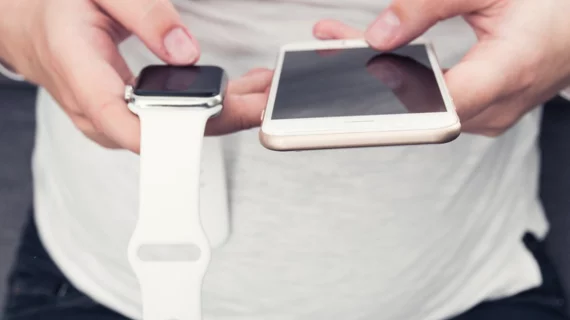Cardiologist argues physicians could diagnose MIs from Apple Watches
A cardiologist in Madrid, Spain, thinks physicians could leverage data from later-generation Apple Watches to diagnose heart attacks, HealthDay News reported Nov. 25.
According to HealthDay, Miguel Angel Cobos Gil, of the Hospital Clinico San Carlos in Madrid, found that by laying an Apple Watch series 4 or 5—both of which boast ECG capabilities—across a patient’s wrist, calf and chest, doctors can collect enough information to determine whether a person is having an MI. Cobos Gil said the data likely wouldn’t be useful to victims themselves—“Definitely, a layperson cannot interpret an ECG,” he told HealthDay—physicians can use the ECG data to draw some initial conclusions.
“In all honesty, if you’re looking at all of the leads they show, you have enough data to diagnose a heart attack,” Alfred Sacchetti, chief of emergency services at Our Lady of Lourdes Medical Center in Camden, N.J., told the outlet. Saccchetti wasn’t involved in Cobos Gil’s study, which was published in the Annals of Internal Medicine this week.
Sacchetti said information gathered by the Apple Watch wouldn’t be able to rule out a heart attack, but it could strongly suggest that one is happening. The tool could be especially helpful in emergencies, he said, like if someone suspected they were having a heart attack on a plane. A doctor on board could interpret the ECG results and, if necessary, suggest the pilots land the plane immediately.
“Honestly, you could see in some areas of the world, this would be a substitute for an electrocardiogram,” Sacchetti said.
Read the full story below:

